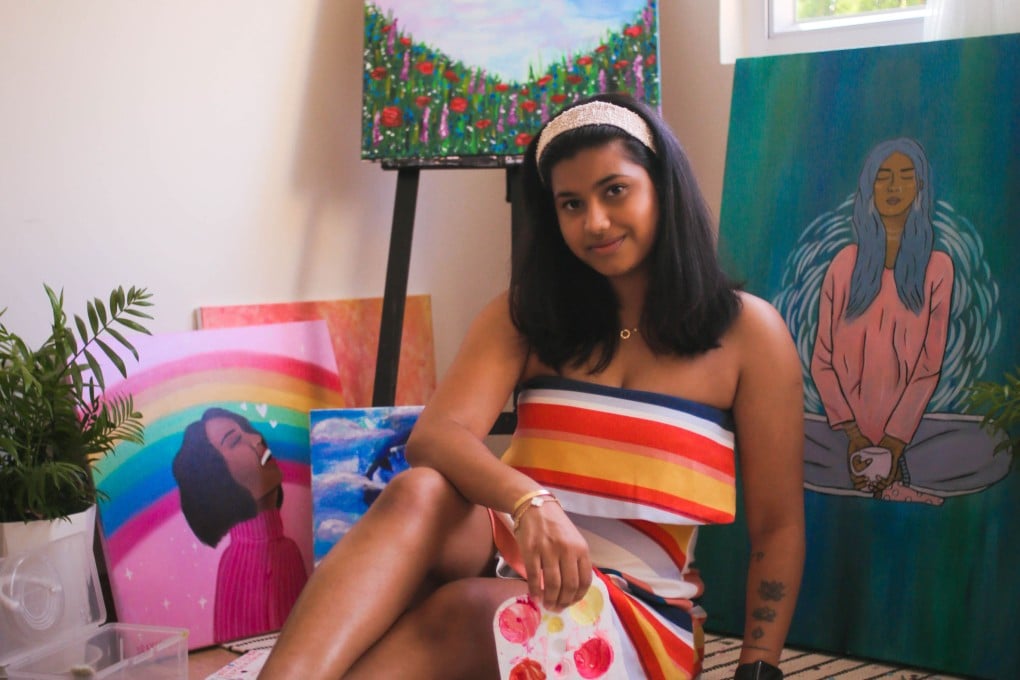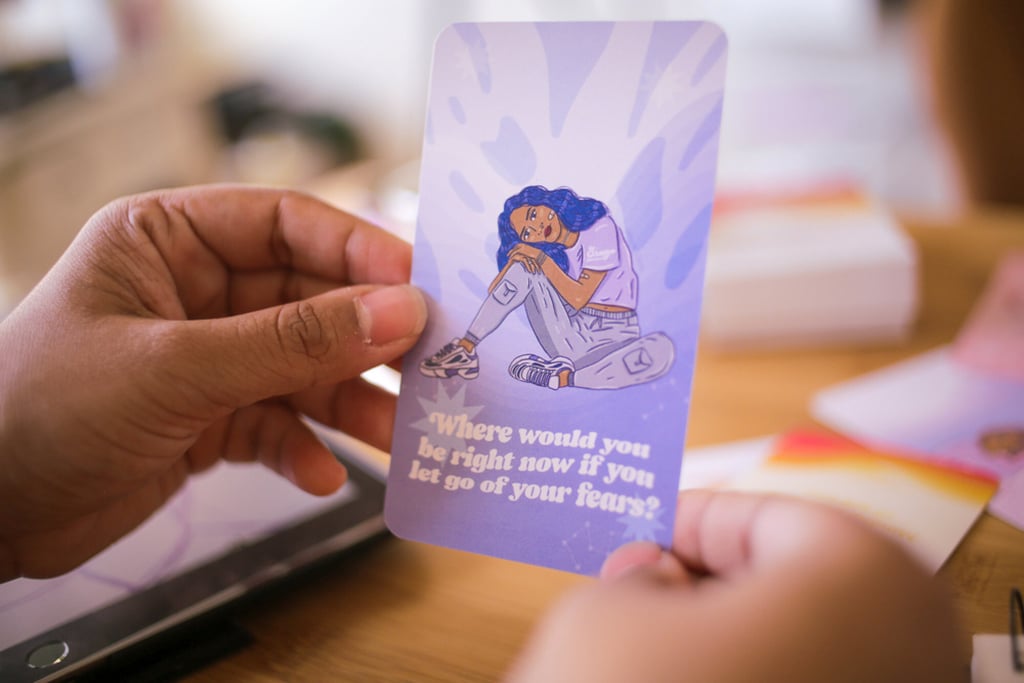Instagram artist addresses stigma of talking about mental health by making art with ‘honest messages’ that draws on her own experience of suffering a breakdown
- Activist artist Srayva Attaluri uses social media to share art that challenges the stigma about mental health, champions body confidence and promotes diversity
- Born in India, she moved to South Korea at a young age and then to Hong Kong – and learned to communicate with those around her through her paintings

As Covid-19 lockdowns, quarantines and social distancing contribute to the worsening state of mental health in Hong Kong and many other parts of the world, Sravya Attaluri’s work has become even more relevant.
Attaluri calls herself an “artivist”, combining the words artist and activist. In 2019, she started Draw For Mental Health, a platform for Hong Kong artists to share their mental health struggles through their work. In July 2021, the group organised an exhibition titled “Journey to Self”, showcasing the work of 10 artists.

Attaluri has created art for human rights organisations, mental health charities and multinational organisations. Earlier this year, Facebook hired Attaluri as its creative partner for Instagram’s “How To Keep Your Heart Happy” campaign. It educates and empowers girls and women, through videos, to use the new safety tools on Instagram to create a safe environment for them.